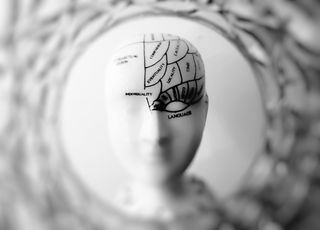Gratitude
Do Words Really Have Any Power to Make a Difference?
The true magic behind words can change everything.
Posted July 2, 2019

About five years ago, I published a book called Magic Words.
"A whole book?" some wondered. "Why can't you just give me a list?"
Because the words aren't where the real magic lies.
And yet, the media still latched onto the words themselves, using headlines such as...
- "This Is The Most Persuasive Word, According To Science" —HuffPost
- "7 Magic Words For Building Powerful Relationships" —Forbes
- "Science Reveals the Most Persuasive Word to Use If You Want to Get Your Way" —The Blaze
Talk show hosts tongue-in-cheekily tried to weave magic words into our conversations. At conferences, strangers shouted magic words and pointed double finger-guns from across the room. One Amazon reviewer hit on every last one...
"YES, I read your book. I hadn't been using the Magic Words, BUT, I intend to be more diligent about it, BECAUSE I think it will be very useful. TIM, I can now see the potential benefit, IF, I use them more often. Your book was a huge HELP! THANKS for writing it!"
Some were less kind. Matt Lauer held up my book on The Today Show and expressed skepticism that tiny little words could really motivate anybody. A New York Times review said, "Ultimately, even the most magical words cannot replace the power of sustained integrity or cushion the devastation that comes from misplaced faith."
What's the deal? Are words magical, or are they not? Is the pen truly mightier than the sword? Was Pearl Strachan Hurd correct when she said, “Words have more power than atom bombs"? How about Freud's quote, “Words have a magical power. They can either bring the greatest happiness or the deepest despair”? Is that true?
Nope.
Yes, words have power and meaning. The magic, however, is in understanding where the power and the meaning come from. The magic is in understanding how human beings interact with language, and how we interact with one another. The magic comes when we use the power of those words on purpose with love instead of by accident or, worse, with intentional malice.
"Communication is not about knowing some words. It's about understanding people."
Human beings crave acceptance from one another. They want to feel like they belong. They want to know there are people out there who agree with them and accept them. This is why "yes" is a magic word. Saying "yes" to someone is a big way to express agreement and acceptance.
Human beings also crave individuality. They want to feel unique and valued as a person. This is why someone's name is a magic word. It shows that you are focused on them.
Human beings like to imagine what could be. They see what is, and think about how they can make it better. This is why "if" is a magic word. It engages the fun process of the hypothetical.
Human beings need to be appreciated. They don't want their efforts to go unrecognized. This is why "thanks" is a magic word. Saying "thanks" acknowledges others and shows gratitude.
Human beings want to feel needed. They want to feel like they contribute to others in a meaningful way. This is why "help" is a magic word. When you ask someone for help, it allows them an opportunity to play the role of hero.
Human beings want to know why. Cause and effect is very important to us. Random acts of violence, with no clear motive, are the kind that bother us the most. This is why "because" is a magic word. When people hear "because," they know that an answer is coming. It scratches the irritating itch left behind by an unresolved "why."
So stop cramming all these words together and thinking that more is better. More is not better. Each word serves a different purpose, and each word pulls the brain in a different direction. Putting them all together is like mixing beer and milk. Not good.
Yes, learn the words. Yes, know the power behind them. But ultimately, the magic only happens when you understand people. It's never about what you should say or shouldn't say in any given situation. It's about what they need to hear.
Understanding. Empathy. Vulnerability. Selflessness. Gratitude. This is the real magic behind words. This is the real magic that has the power to change our world.




